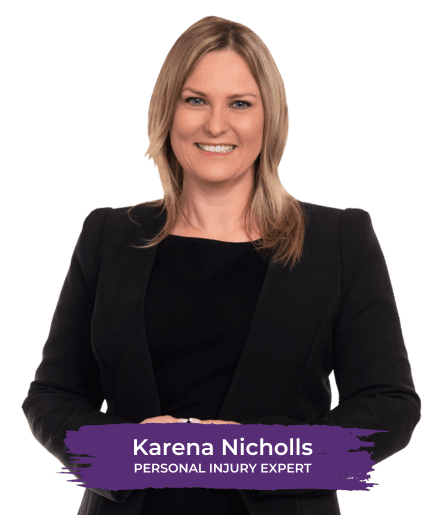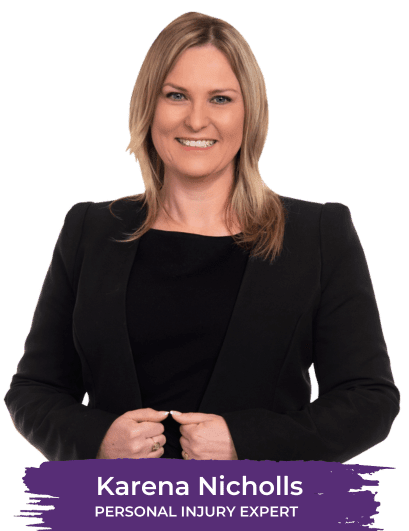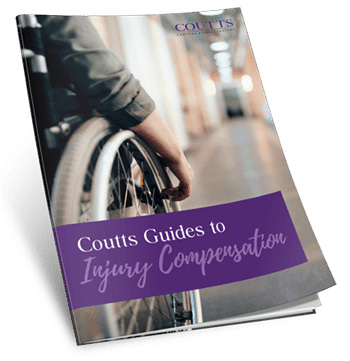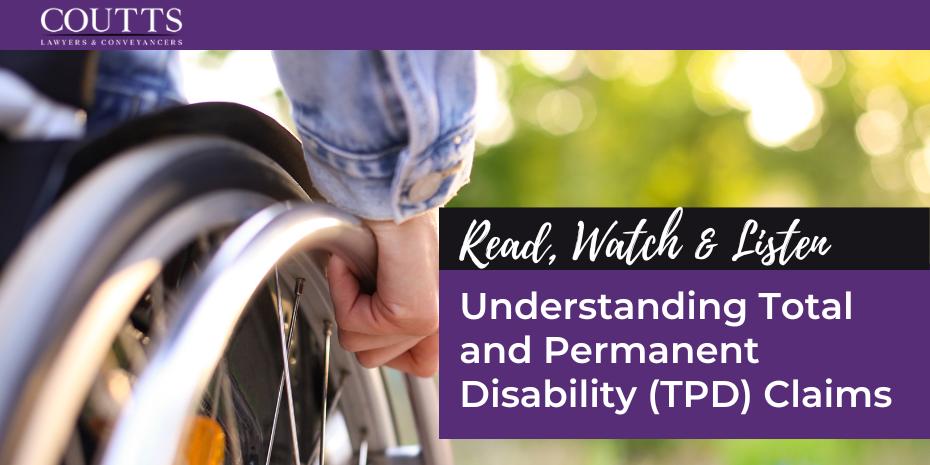We’ve Got You Covered
We offer specialised legal services for Medical Negligence cases. Our team is skilled in handling claims arising from inadequate or negligent medical treatment, misdiagnosis, surgical errors, and other forms of malpractice. We understand the profound impact such experiences can have on individuals and their families. Our approach is to provide empathetic yet assertive representation, ensuring that our clients receive the compensation and justice they deserve for the harm they have suffered.

Karena Nicholls
Partner
Book Your Medical Negligence Consultation Now
What is Medical Negligence?
Medical negligence, also known as medical malpractice, is the failure of a healthcare provider to provide treatment to a reasonable standard of care and skill. Healthcare providers include:
- Private and public hospitals
- Surgeons
- Nurses and midwives
- GPs
- Dentists
- Chiropractors
- Pharmacists
Some examples of medical negligence include:
- Incompetent treatment, including surgery
- Anaesthesia errors
- Incompetent post-operative care
- Failure to warn about possible complications or risks of treatment
- Incompetent treatment during birth, such as stillbirths and neonatal deaths
- Incompetent prescription and monitoring of medication
- Failure to treat your condition in a timely manner
- Overseas surgeries
- Misdiagnosis or delay in the diagnosis of your condition
- Failure to refer for specialist advice or investigatory tests
How is Medical Negligence Proven?
Not all injuries arising from healthcare treatment are classified as medical negligence. As many healthcare treatments carry possible complications or risks, injuries from healthcare treatment can occur even when the healthcare provider provides treatment to the appropriate standard.
However, if the treatment you have received is proven to have been below the standard of care and skill that a reasonable professional would have provided in the same circumstances, medical negligence has occurred. To establish medical negligence, it must also be proven that the treatment caused an injury that would not have occurred if the treatment had been provided to the appropriate standard.
What Compensation Could I Be Entitled To?
If you have suffered an injury as a result of medical negligence, you may be entitled to compensation for:
- Pain and suffering i.e Non-Economic Loss
- Past and future medical expenses
- Loss of wages and future loss of earning capacity
- Past and future care expenses such as domestic care
- Equipment & Aides
Do Time Limits Apply to Claim for Medical Negligence?
Yes, a claim for compensation for medical negligence must be commenced within three (3) years from the date of injury. If you have suffered an injury as a result of medical negligence, it is important to seek legal advice as soon as possible. If time limits are not complied with, any potential rights to compensation that you have may be lost. However, there are grounds for leave to reinstate the proceedings pursuant to when the action was ‘discoverable’, i.e. when you became aware that you had a case. We advise once you have sought initial legal advice there is a stabilisation period of 6-12 months to allow your injuries to stabilise.
What to Expect with Coutts Lawyers
Step 1: Initial Contact
Reach out to Coutts Lawyers via our website, phone, or in person. Briefly describe your matter.
Step 2: Consultation Appointment
Schedule and attend a meeting with a Coutts lawyer to discuss the specifics of your matter and desired outcomes.
Step 3: Information & Legal Advice
Share all related documents and information. Your lawyer will review everything, clarify aspects as needed, and then advise on the best action course.
Step 4: Action Plan Development
Based on the advice, an appropriate action plan will be formulated. This may involve communication, documentation processes, or further legal steps.
Step 5: Implementation
Execute the action plan, addressing a range of legal scenarios as necessary.
Step 6: Resolution & Closure
Navigate towards a resolution, with the path determined by the nature of the matter. Your Lawyer will outline any final actions or considerations.
Book Your Medical Negligence Consultation Now
Introducing Karena
Your Compassionate Lawyer
Meet Karena, a Partner at Coutts Lawyers & Conveyancers, and the head of our esteemed Injury Compensation and Employment Law teams. With over two decades of experience in the field of Insurance Law, Karena’s passion, dedication, and client-focused approach have established her as a leading authority in compensation and employment law.


Connect with Karena Today
Multi Award-Winning
Law Firm

Medical Negligence FAQ’s
An unfortunate medical outcome refers to unexpected complications or results that can arise from a procedure or treatment, despite the healthcare provider offering care to the best of their abilities and adhering to the accepted standards. Medical negligence, on the other hand, implies a breach in the duty of care by the healthcare provider, leading to an injury or harm that could have been avoided had standard care been provided.
Yes. If you believe a loved one’s death was a result of medical negligence, you may be eligible to file a wrongful death claim on their behalf. Compensation can cover loss of companionship, funeral costs, loss of future earnings and more.
Essential evidence includes medical records, prescriptions, lab tests, imaging results, and any correspondence with the healthcare provider. It’s also beneficial to gather witness testimonies, photographs of the injury, and expert opinions from other healthcare professionals. An experienced Lawyer can guide you through the evidence collection process.
Yes, claims can be made against healthcare providers regardless of their current professional status. It’s the insurance companies, in most cases, that would be responsible for paying out any settlements or compensation, not the individual practitioner.
After determining that you may have a viable claim, the process typically includes gathering evidence, notifying the involved parties, attempting to negotiate a settlement, and if necessary, proceeding to court. It’s crucial to have experienced legal representation to navigate the complexities of medical negligence claims.
Download your FREE Injury Compensation Guide!



